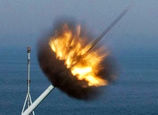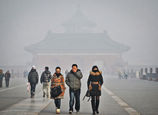
After the founding of the People’s Republic of China
1950
The Central People's Government issued a strict ban on opium, and launched a nationwide anti-opium campaign. The Communist Party of China gave full play to the superiority of socialism, effectively mobilized public support, and severely punished and reformed criminals. It seized a large amount of opium, forbade poppy production, closed opium houses, and severely punished people manufacturing and selling drugs. More than 80,000 drug dealers were severely punished, and about 20 million drug addicts were rehabilitated. It also took advantage of the rural land reform to eliminate poppy production. The CPC’s elimination of opium, which had plagued China for more than 100 years, in just three years consolidated the new people’s government, improved the images of the Party and the government, and increased the people’s trust in them. China had been known as a “drug-free country” for nearly 30 years between the 1950s and 70s.
1981-1982
The CPC Central Committee and the State Council issued the Notice on Reiterating the Ban on Opium and Urgent Notice on Strict Opium Ban as the Golden Triangle smuggled drugs into China and led to a resurgence of drug problems. The country intensified efforts to eradicate sources of drugs and obstruct the channels of drug trafficking in the southwestern regions.
1990
The 17th Session of the Seventh National People’s Congress passed the Decision on Prohibiting Drugs, providing a powerful legal tool for long-term drug control.
1991
The CPC Central Committee and the State Council issued the Document No. 5 on strengthening drug control in February. The State Council set up the National Narcotics Control Commission (NNCC) to provide a unified leadership for drug control, and increased the number of anti-drug police officers by 3,000 as well as the funding for drug control. The NNCC convened the first national anti-drug conference in June, and strengthened efforts to combat drugs nationwide.




















![]()
